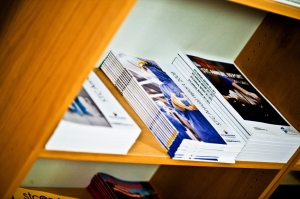I read an article on the Guardian Higher Education Network recently by Professor Stephen Curry entitled “It’s time for academics to take back control of research journals“. He writes about how the “Publish or Perish” culture of academic research has led academia to quite a difficult place in its relationship with the business of scholarly publishing. His article is a useful reminder of the history of scholarly communications and their purpose in disseminating and growing our collective knowledge.
I think there is an uncomfortable truth in that many researchers do not really understand the economics of journals and book publishers and their relationship with the academy. Back in January, Professor Martin Eve came along to a session organised by the UWE Library Research team to talk about open access and how the economics behind it operate in a talk he entitled “Open Access, or: The Internet is not going away“.
Martin is a professor of Literature, Technology and Publishing at Birkbeck, University of London. He is also the co-founder of the Open Library of Humanities (OLH) and his talk was a really good explanation of how academic publishing could and should work – even in the humanities and social sciences. I think it important to highlight that the model of open research is not the exclusive domain of science, it affects us across the disciplines although there are some particular challenges in humanities.
He started out by outlining the contradictory nature of scholarly publishing as it is now, on the one hand we publish to be read but on the other we publish to expose our work to assessment.
He framed this as researchers operating in a symbolic economy whereby they hand over their academic findings to publishers to package up and disseminate. This content is given away and, in exchange, researchers hope that these outputs will translate, through assessment and ranking, into a pecuniary advantage in terms of promotion and progression (and therefore salary). There is a delayed benefit in this academic activity which exacerbates the precarious nature of academic research careers, especially those who are just starting out. Martin showed us how this symbolic economy maps onto a real economy of publishing.
We captured all of this on video that you can see below:
The challenge for early career researchers is to look past the rhetoric of “publish or perish” and understand the actual economics of scholarly publishing. It is for researchers themselves to push back – the status quo cannot be maintained because it is simply not sustainable and, worse, is undermining the most important aspect of publishing academic work in the first place – the need for it to be read.
The challenge for people like me who support the development of researchers is to keep pushing for the open research agenda to be embraced in institutional support for researchers, for example making it as easy as possible for postgraduate researchers to deposit their doctoral outputs in open repositories and reduce the barriers that are sometimes put in the way.
Find out more
1. Vitae Researcher Development Website on publishing your research (login required)
2. Why Open Research – new website for open researchers
3. JISC resources to help researchers with open access





